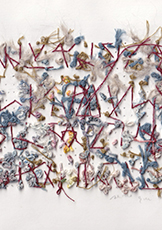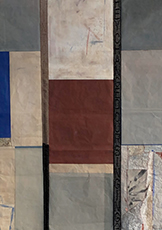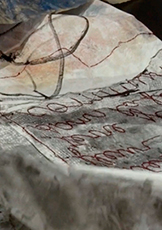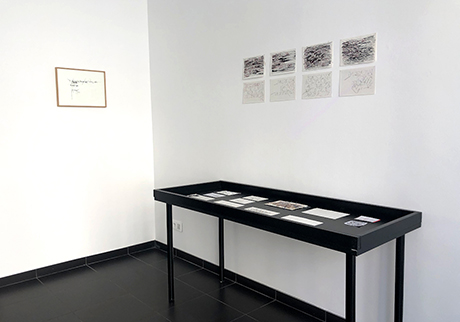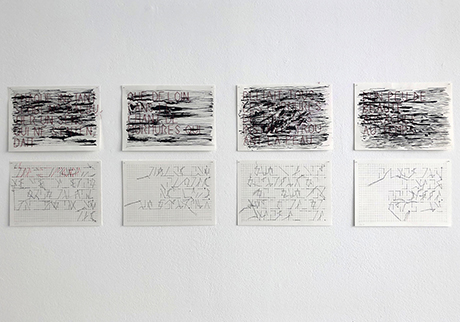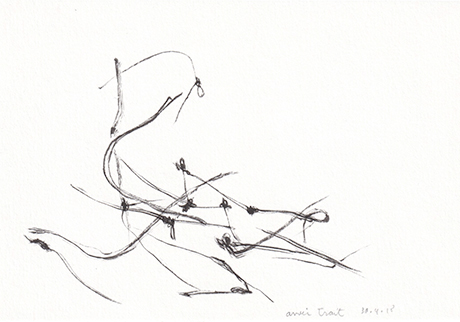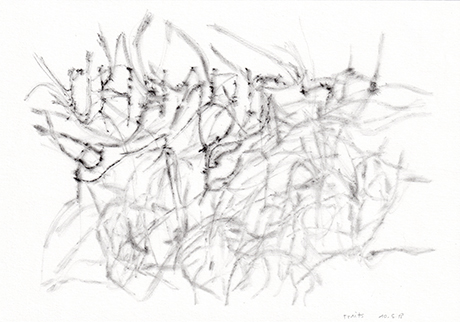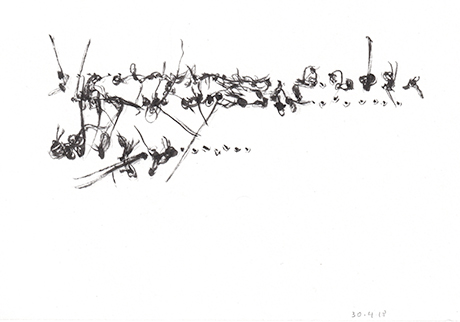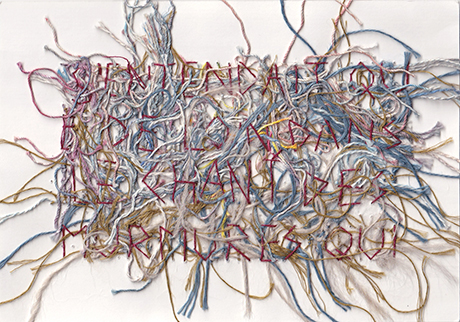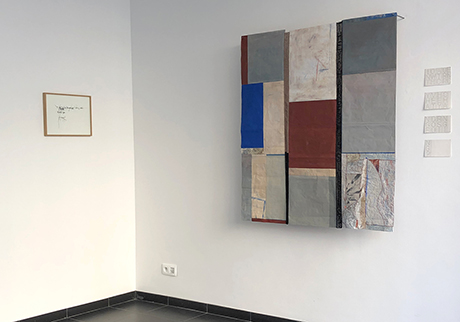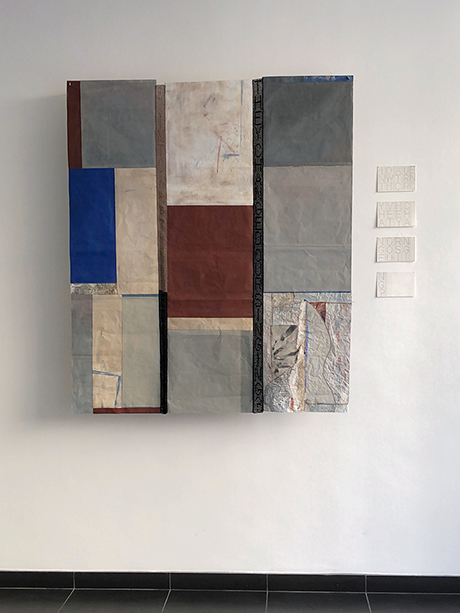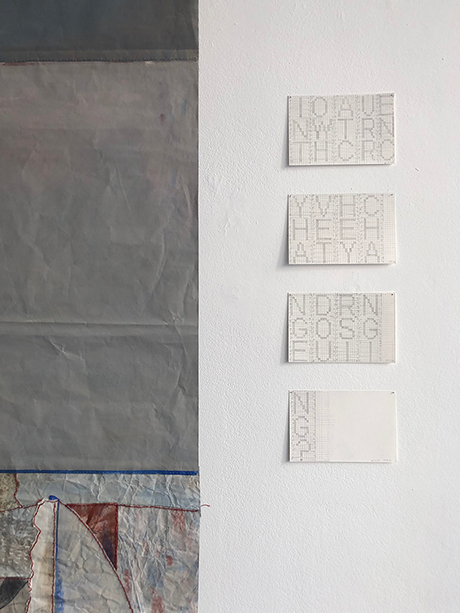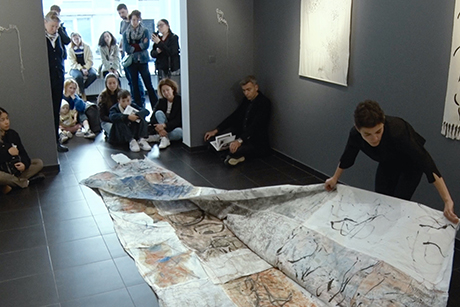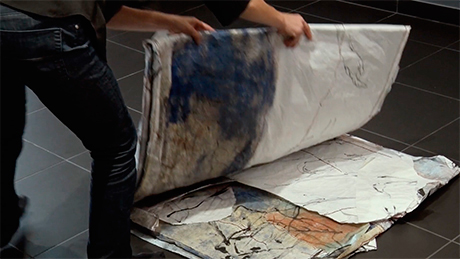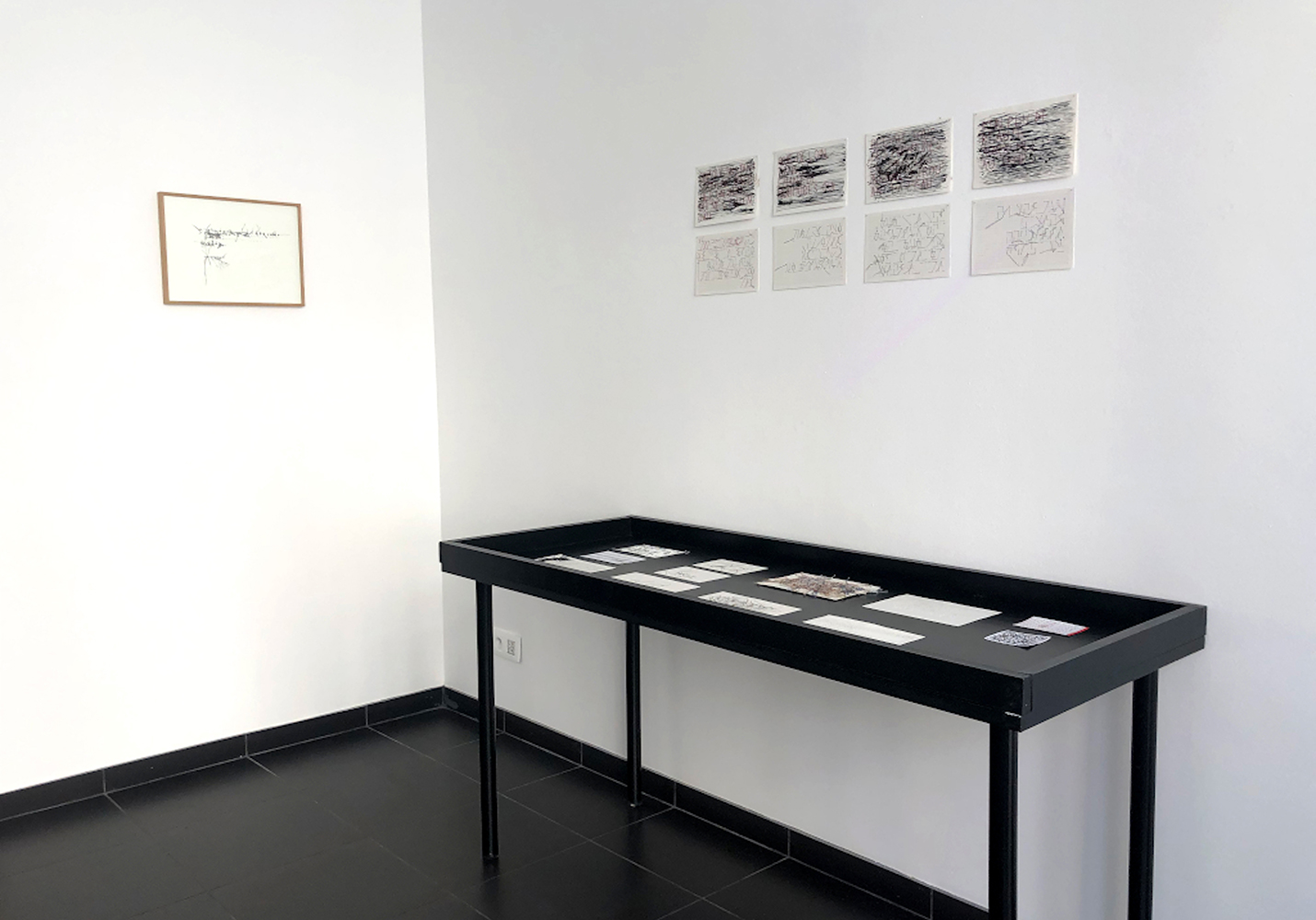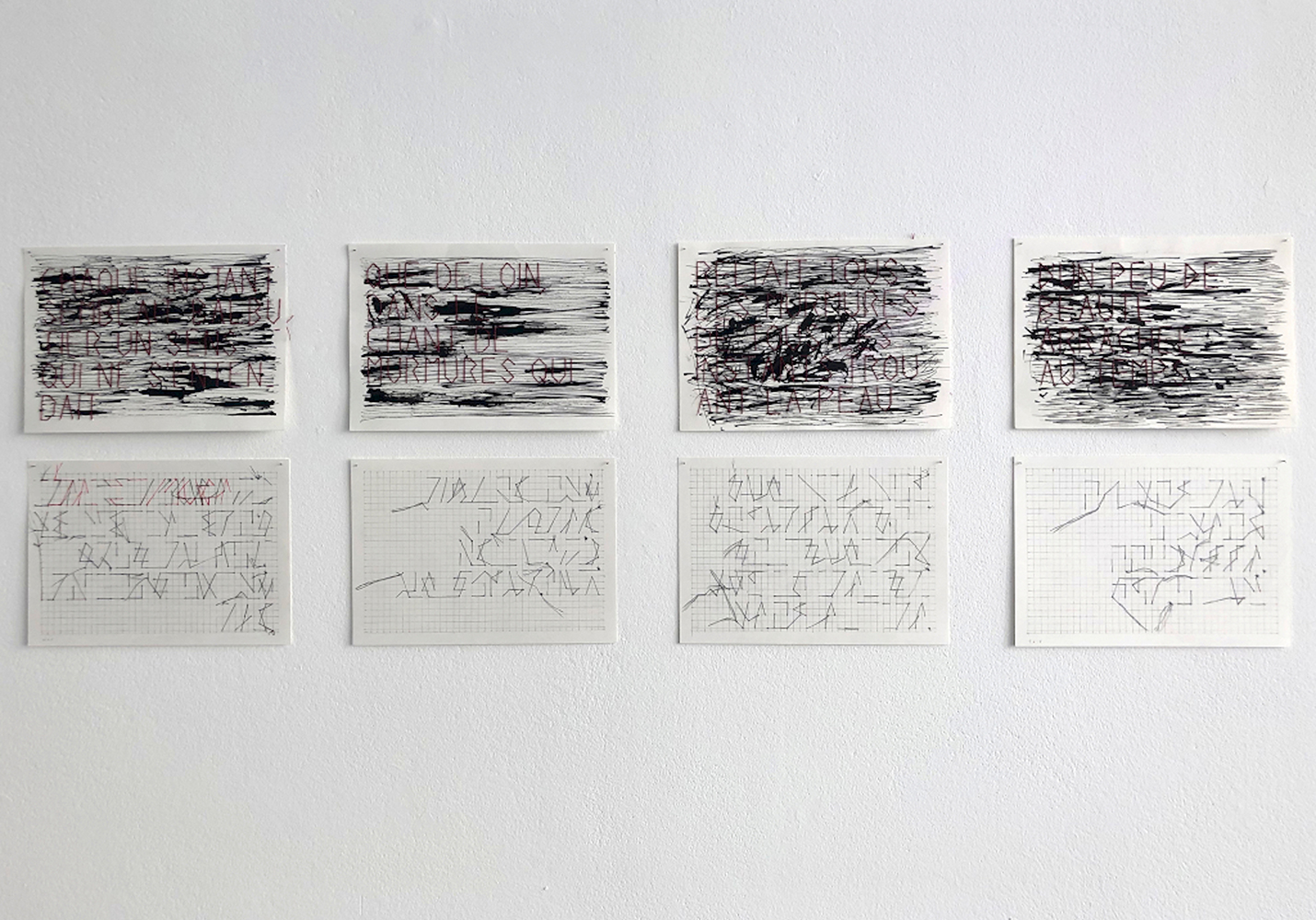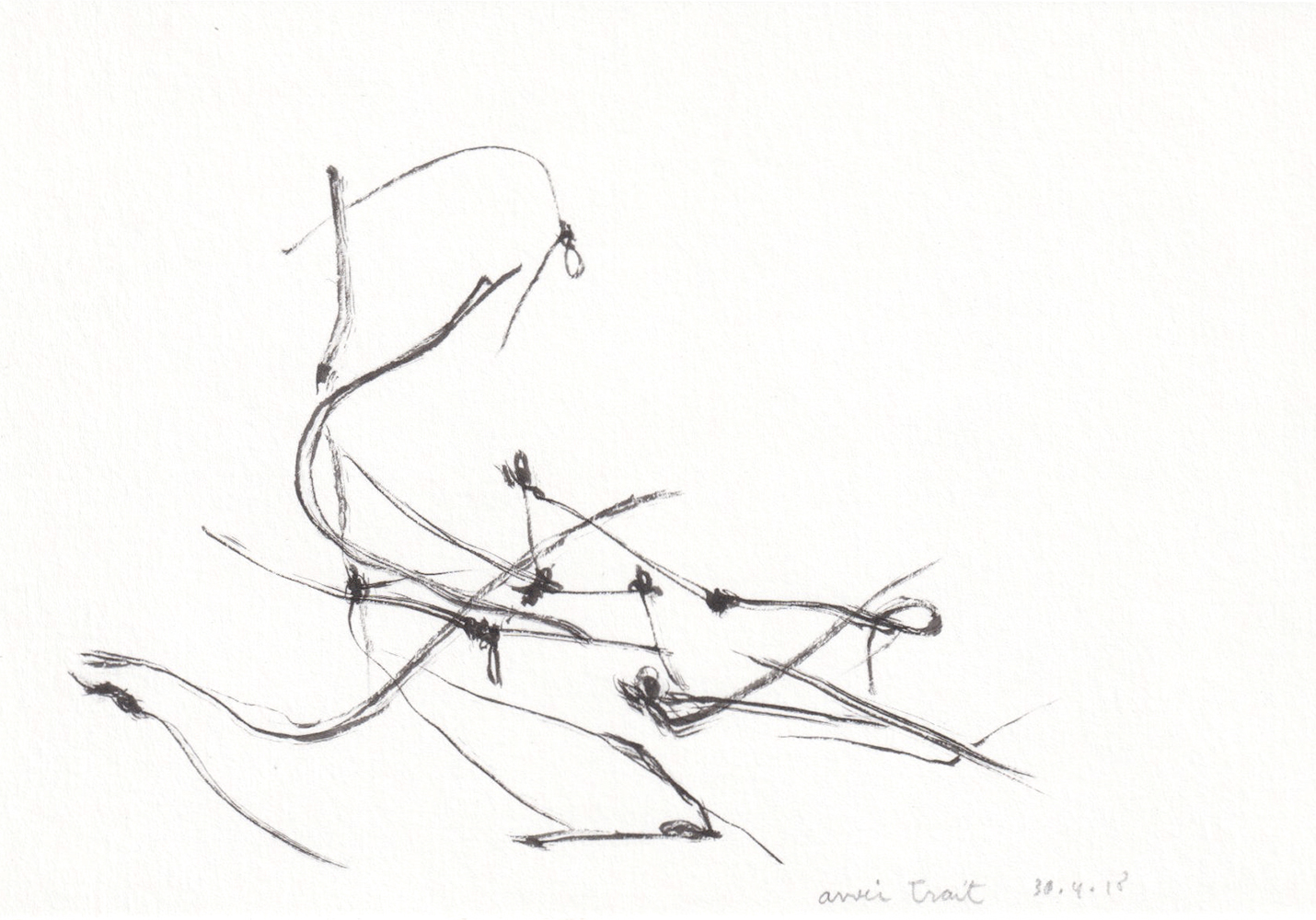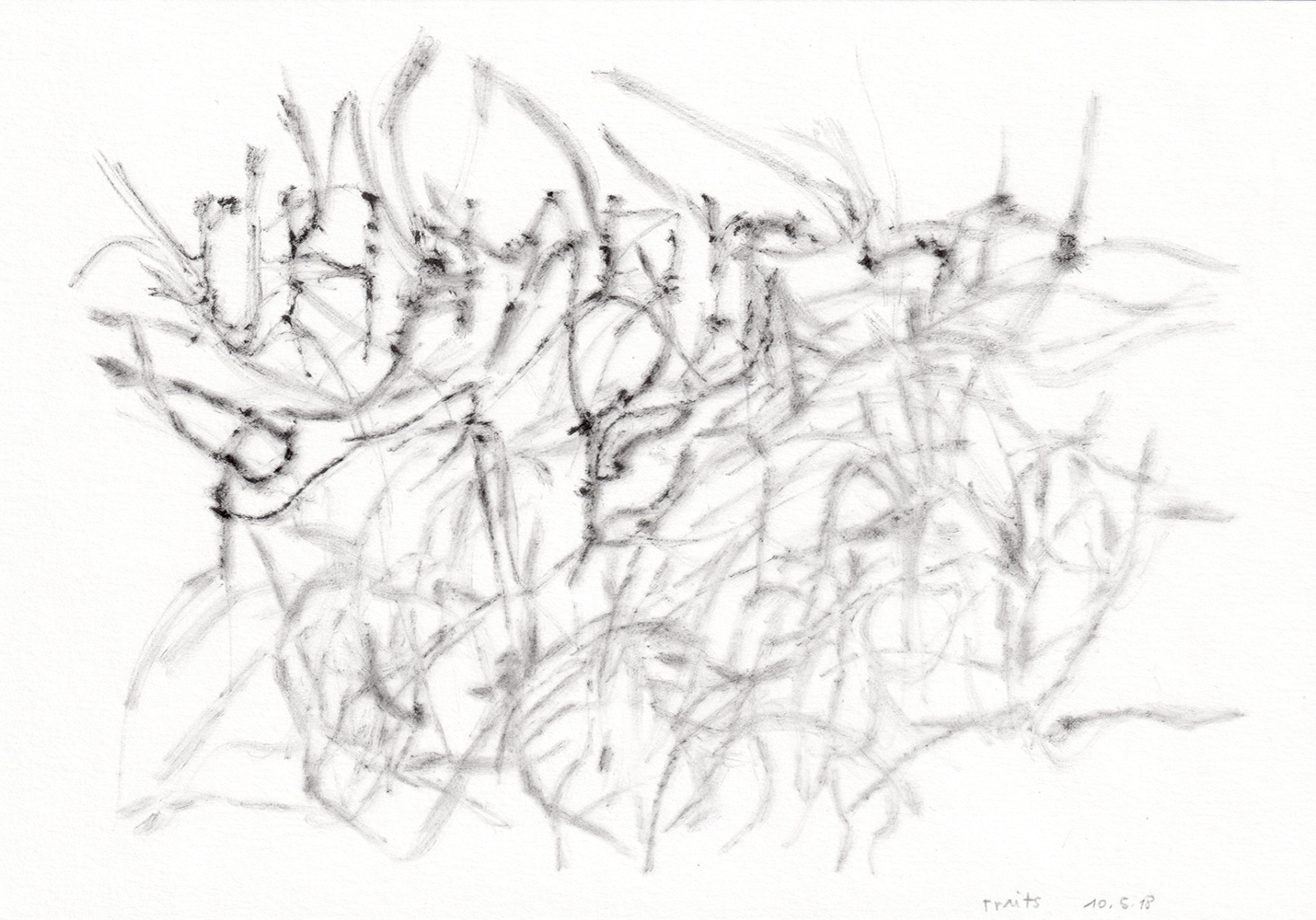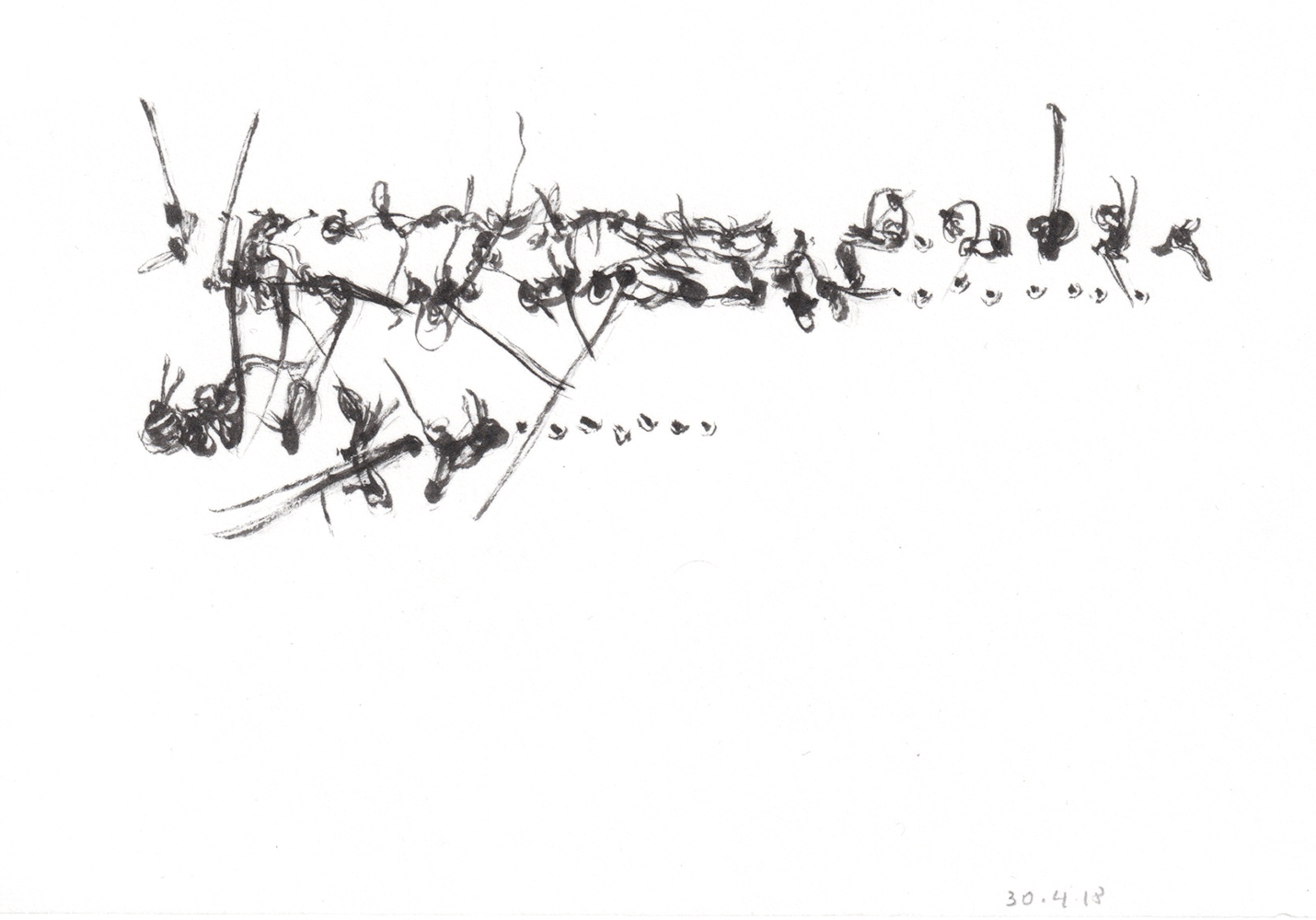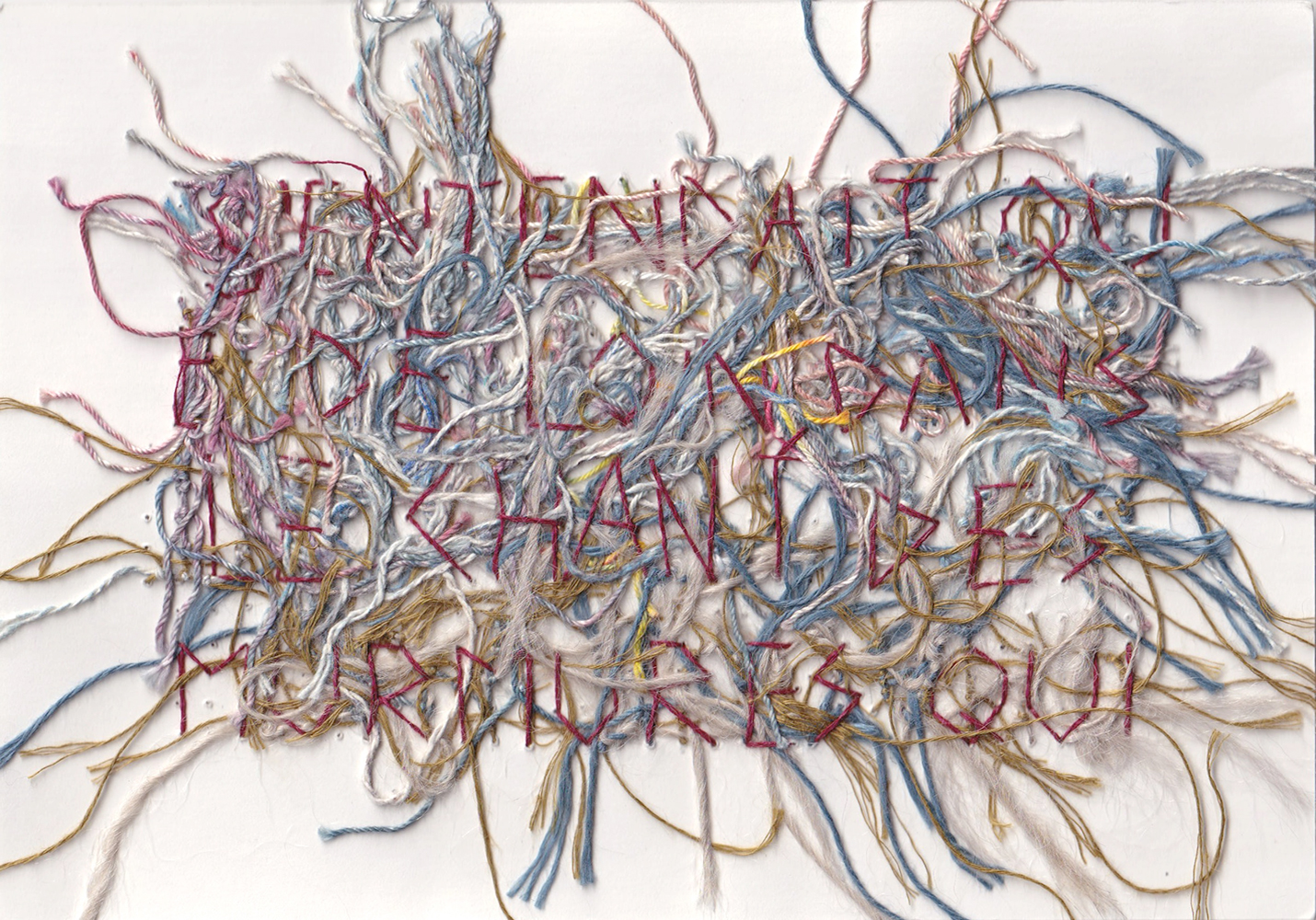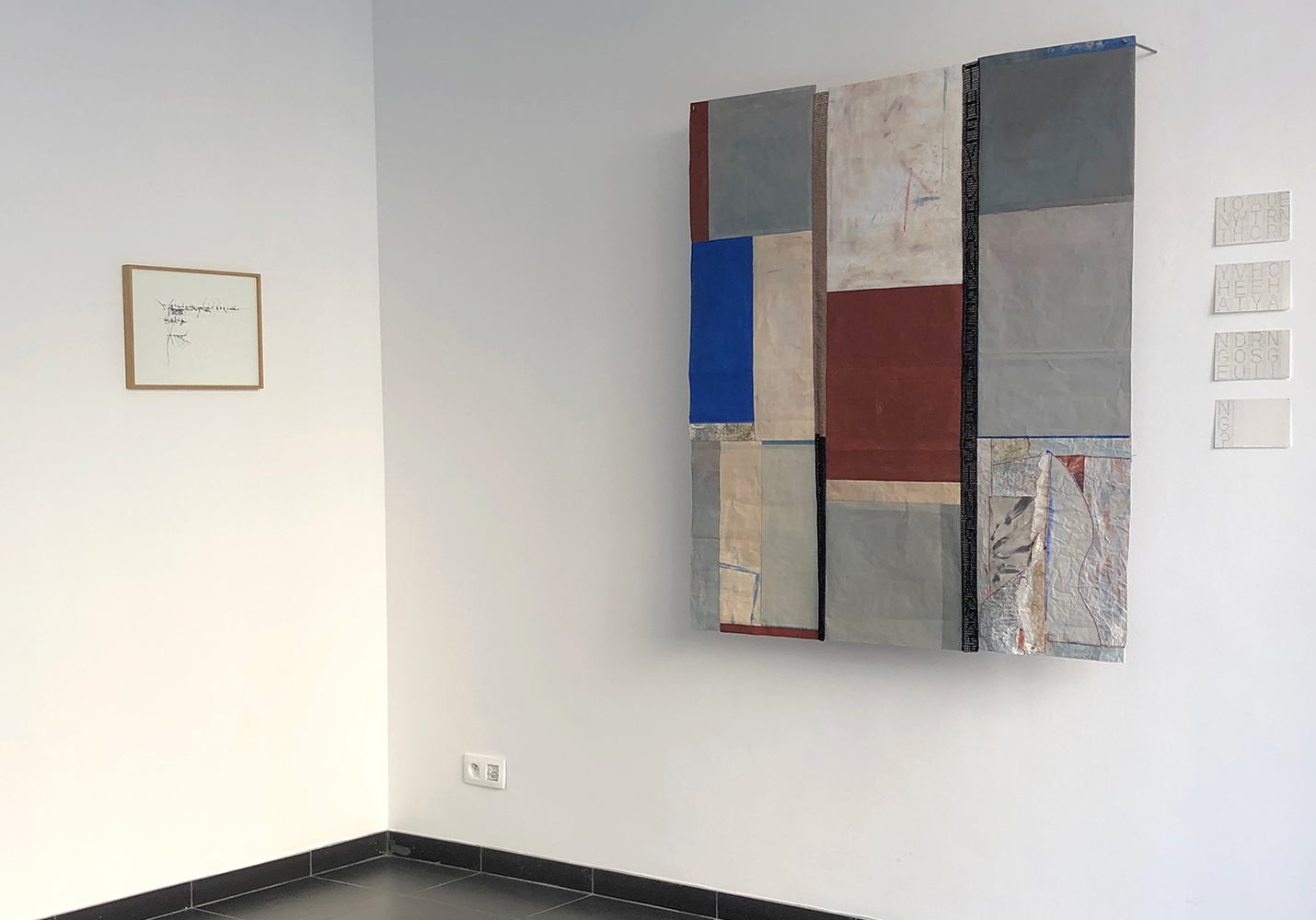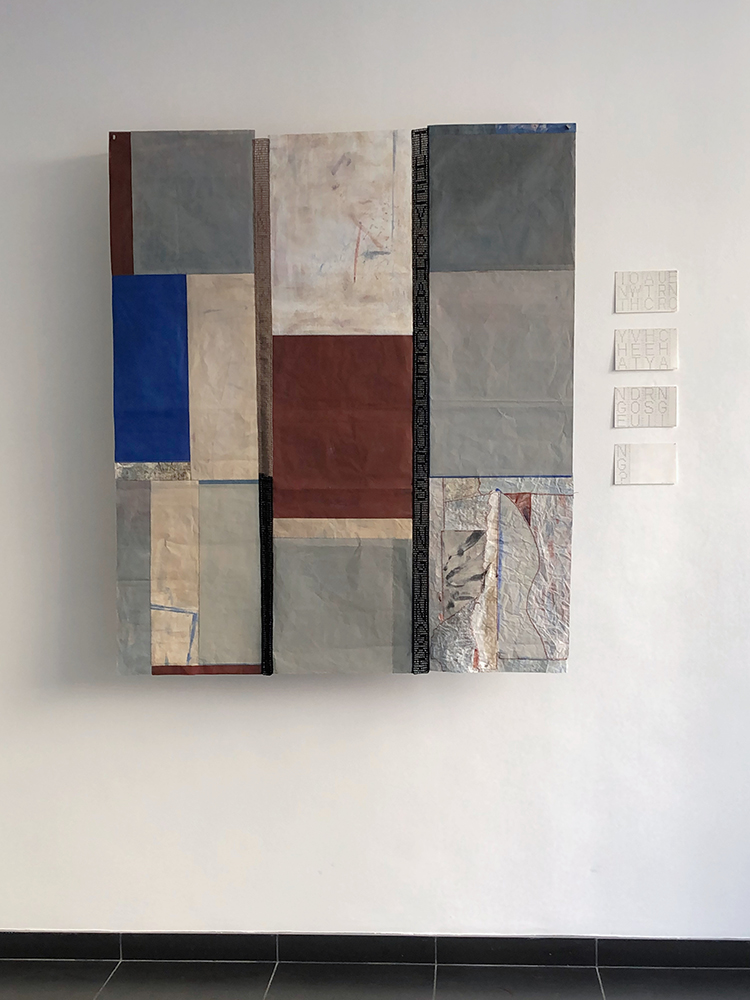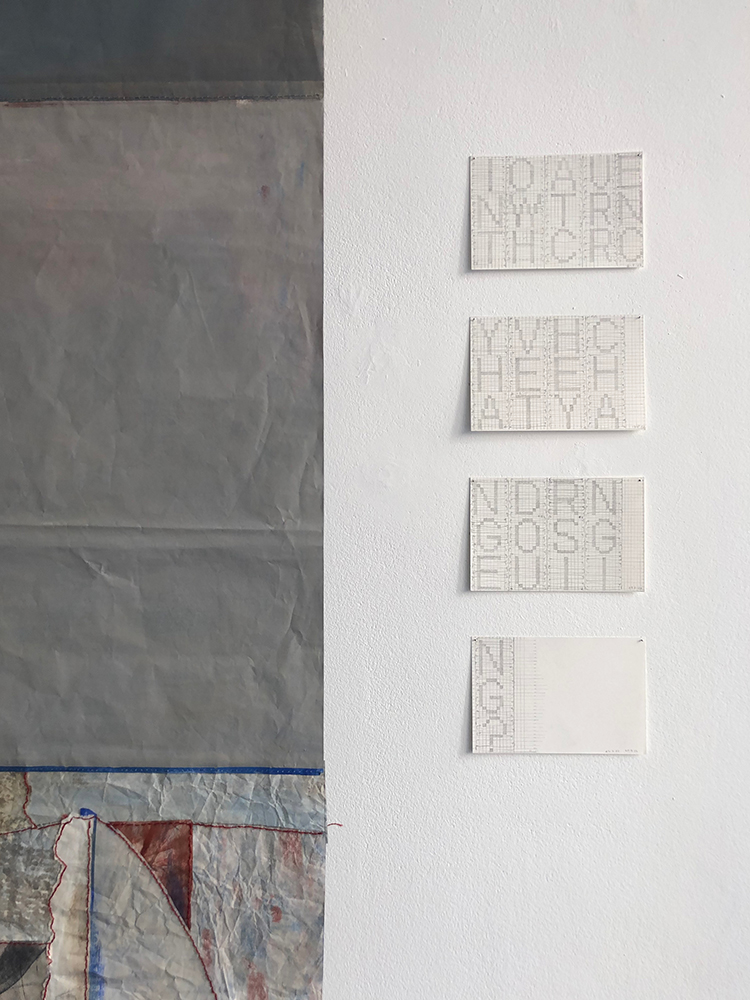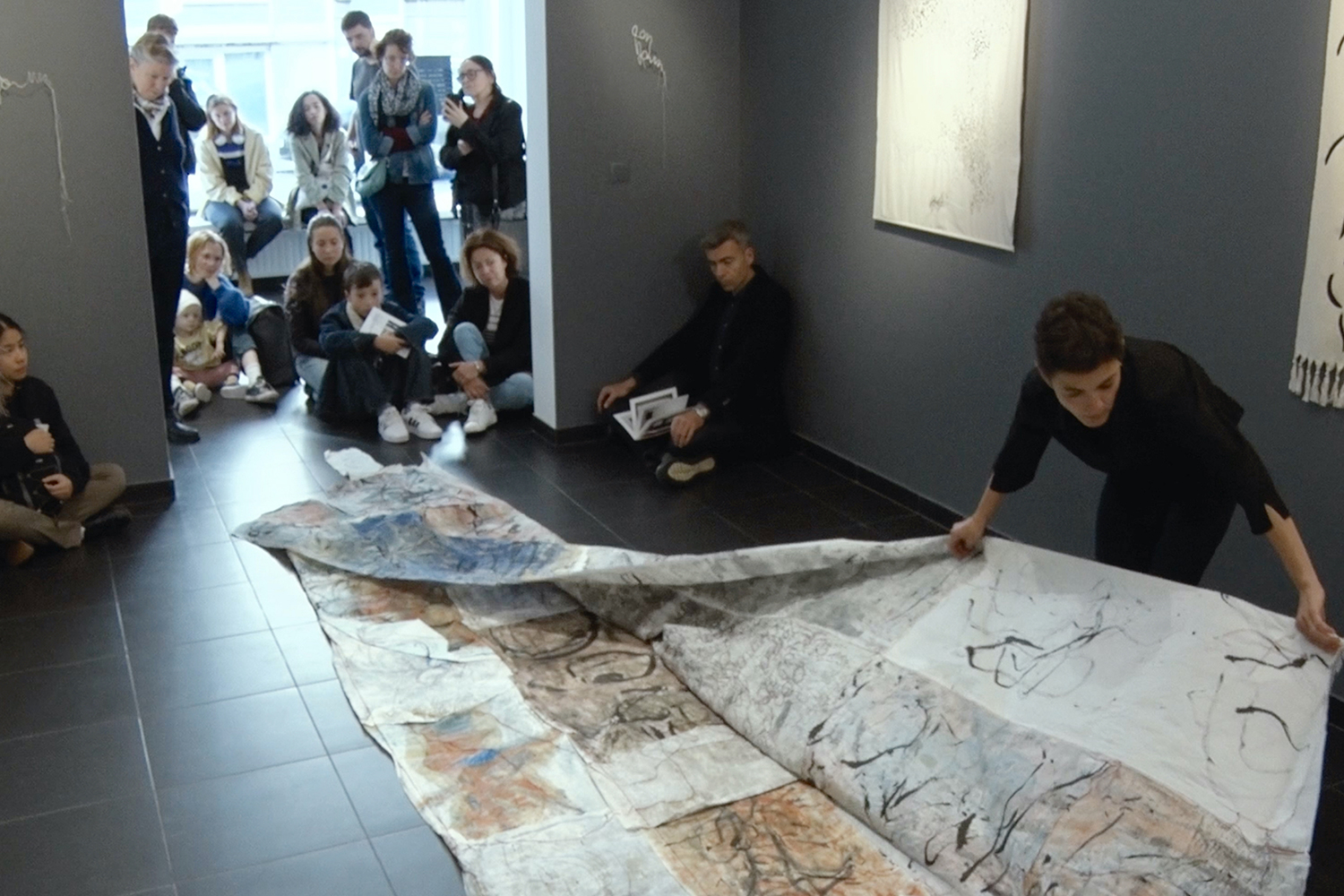Installations
8 September-1 October 2022
Texte, Texture, Textile
Group exhibition
Odradek, Brussels, Belgium
→ odradekresidence.be/...
Chaque jour qui passe from Des champs des puits project: drawings
Ensemble errant project: drawings, painting, textile
Réparation project: painting, textile
Langue vagabonde video, 4'32", 2022
The series Chaque jour qui passe is part of the book project Des champs des puits in collaboration with Thierry Bodson, where the dialogue between my project Minimal drawings and his poetry have engendered constellations of drawings/poems which alter through successive translations and transformations.
Ensemble Errant was created for the exhibition Texte, texture, textile in response to the phrase “What migrated was portable”, with which Odradek's resident artiste Marina Gasparini constructed one of her works. Ensemble Errant was built while travelling and has a foldable and light character that can be found in other of my works. I work in strips which are here tied up together by crocheted words: “[...] into what currency have they changed our singing? [...]”, extract from the poem Separation by John Berger, constituting the structure of the work. This poem talks about emigration, language and its transmutation. It arises the question of what we bring and what we leave behind when migrating.
Natalia Blanch and Marina Gasparini collaborated on the concept of the performance Langue vagabonde which took place on 17 September 2022, as part of the exhibition Texte, texture, textile at Odradek gallery in Brussels. The encounter between Marina Gasparini's and my work is in the idea of displacement. Marina refers to the movement of objects using the phrase “What migrated was portable”. She created lettering by sewing together used fabric clothing whose textures mainly represented flowers. In her performance, Marina packages the letters one by one in the order of the sentence.
In my work, I alludes to the movement of people. I unfold and fold the work Réparation made of pieces of rice paper torn and sewn by hand, approximately 4 × 3 metres. An excerpt from the poem Separation by John Berger is embroidered on its surface. This poem addresses the profound transformations that affect the lives of people who emigrate. The hand-sewn rice paper works evoke attempts of repair and reconstruction based on my experience. The gesture of unfolding and folding the large, embroidered work of art and the recitation of the excerpt from the poem constitutes her performance and, according to Simone Schuiten “implies the care and risk we face every time we defy the constraint of leaving our places and our roots”. —


